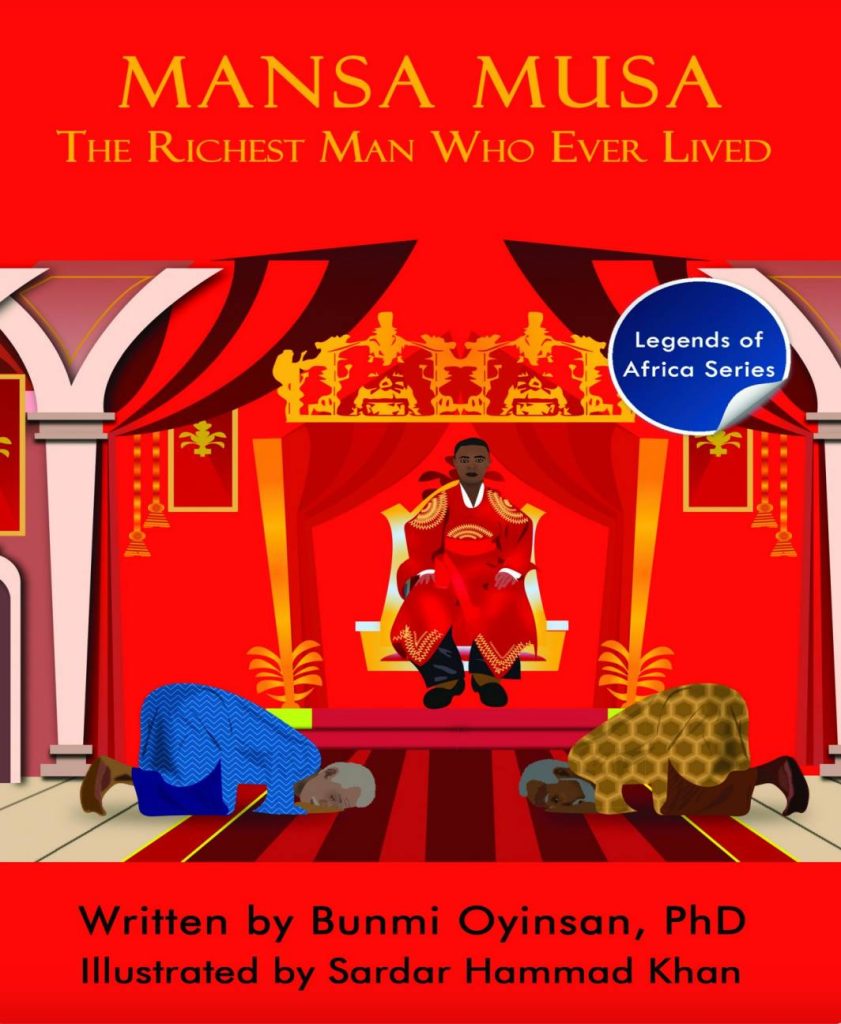
Mansa Musa: The Richest Man Who Ever Lived
(Legends of Africa Series)
Gold beyond imagination. A kingdom rooted in learning. A legacy that still echoes today.
Mansa Musa was more than a wealthy ruler—he was a visionary leader who transformed Mali into a beacon of prosperity, learning, and culture. In this captivating tale from the Legends of Africa series, Dr. Bunmi Oyinsan tells the fictionalized story of the boy who would become the richest man in history. From his humble beginnings to his legendary pilgrimage to Mecca, Mansa Musa’s journey is filled with wisdom, generosity, and bold ambition.
Told in simple, engaging language and paired with bright illustrations, this story inspires children to dream big and lead with kindness. It highlights how true wealth is not just gold, but also education, legacy, and service to others. Young readers will learn about ancient empires, trade, Islamic scholarship, and the power of leadership in shaping the destiny of a people.
This story is ideal for young learners exploring African history and identity, and for parents or educators seeking positive African role models for children.
